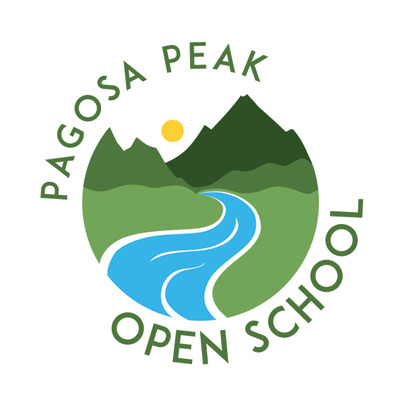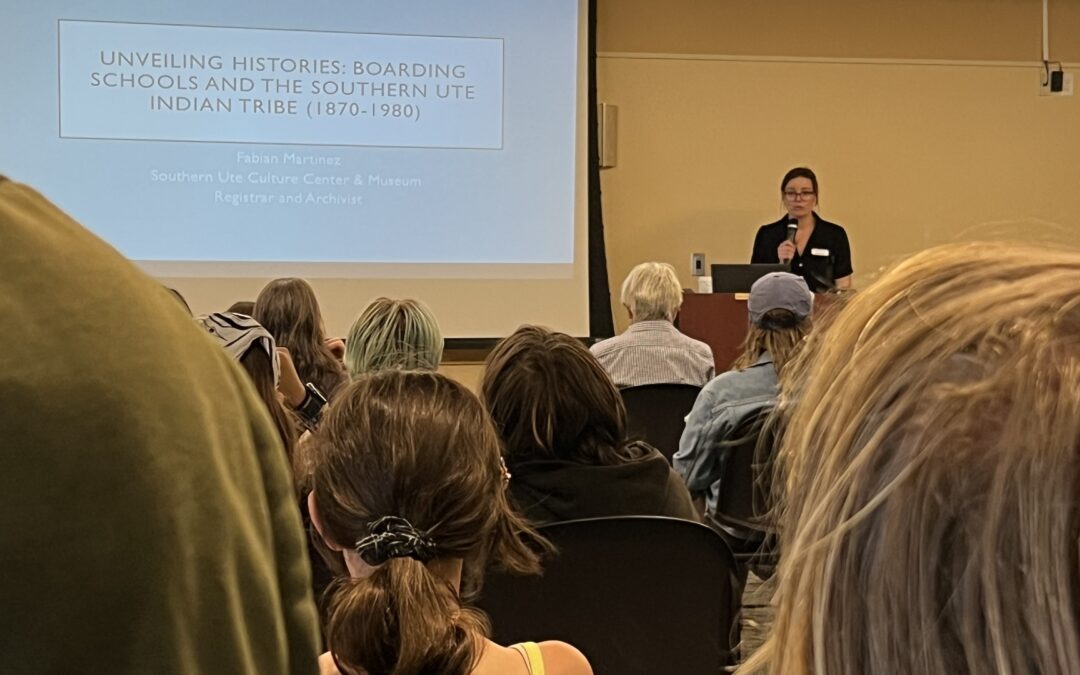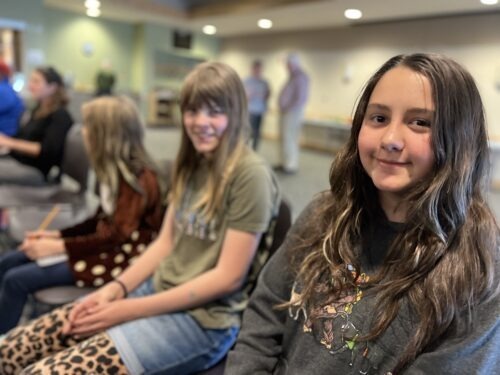Pagosa Peak Open School middle-schoolers joined approximately 70 community members at the Durango Library on April 18, to hear Fabian Martinez with the Southern Ute Cultural Center present the “Unveiling Histories: Boarding Schools and the Southern Ute Indian Tribe.”
The PPOS fifth- and sixth-graders dove into Southern Ute history during a project on Indian Boarding Schools facilitated by PPOS Advisor Rue Graham.
“This project started out with the intent to learn about the historical impact of American Indian Boarding Schools on indigenous culture,” Graham said. “Little did we know, we’ve just scratched the surface; our understanding of the lasting impacts and contemporary cultural implications and intergenerational traumas are limited. We’ve still got a lot to learn!”
During the Durango presentation, Mr. Martinez shared not only the history of boarding houses, but his personal history around his family’s participation in boarding houses – including his father, grandmother and great-grandmother.
“I can’t believe some of these children were kidnapped and put in these schools,” said fifth-grader Quinn. “I can’t imagine why anyone thought that was okay.”
The students began this social studies project by reading “Two Roads” by Joseph Bruchac, a coming-of-age novel that provides perspective on boarding schools during the World War I era.
“When students can explain complex historical events from multiple perspectives, seeking to understand with empathy and compassion, I know the work has begun,” Graham said. Integrating fiction, nonfiction, primary and secondary sources into projects allows for students to have a well-rounded understanding of academic concepts.
“Providing historical context to modern social and local topics makes project-based learning more engaging,” Graham added.
The event in Durango provided students with a greater understanding of boarding house practices and current relationships between tribes and government: reminding them that these issues are not ancient, and they are local.
“The first Indian boarding house was close to Durango,” said one fifth-grader, referring to an Indian Boarding House constructed in Hesperus, near Fort Lewis in the late 1800s.
The students’ understanding of local history included a look at the rights and responsibilities of people throughout recent history in our region. The class will continue collecting perspectives next month during a visit to a boarding house site near Farmington. There they will hear first-hand accounts of the experiences in these facilities, and to participate in service work relating to conservation of this history.
Boarding houses were introduced to this region of Colorado as a way of controlling and exterminating the customs of Native Americans by European settlers. The Indian Boarding House Era was born of the “Utes Must Go” Colorado campaign and began in the 1880s. It is well-documented that abuse, neglect and attempts at erasing Native cultures happened within these boarding houses. Often participants were there against their will, and their education was made up of vocational skills related to manual labor and housework instead of academics. The negative side effects of the Indian Boarding House Era are still felt today, as generational trauma continues and local tribes argue to keep their lands, language and customs intact.
“It’s important for us to learn this history because it helps us know how to help and how to make the future better,” Quinn said.
Pagosa Peak Open School is a free, K-8 district charter school focused on implementing a project-based learning (PBL) curriculum in a Restorative Practices environment. Field work and interviewing experts are foundational to project-based learning.


